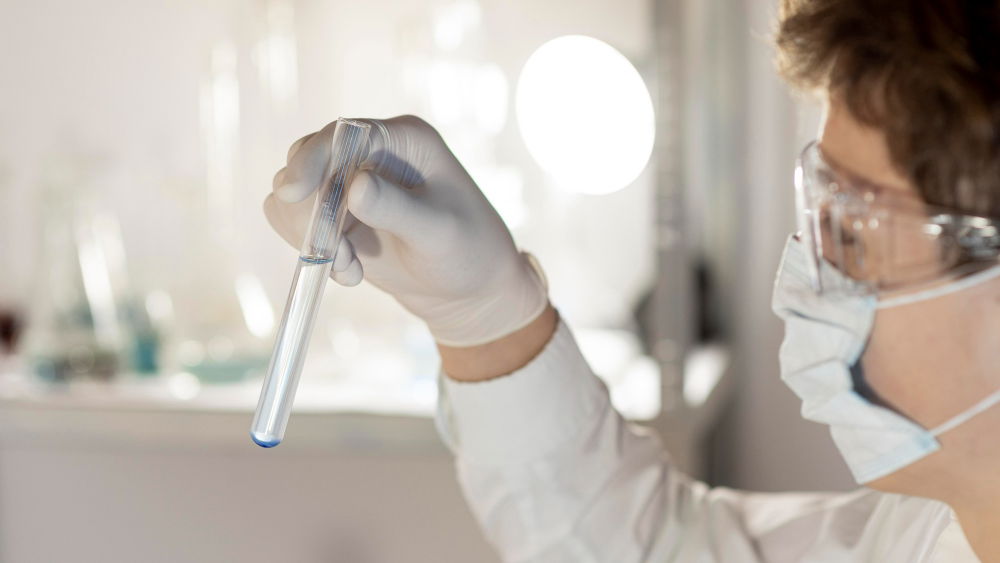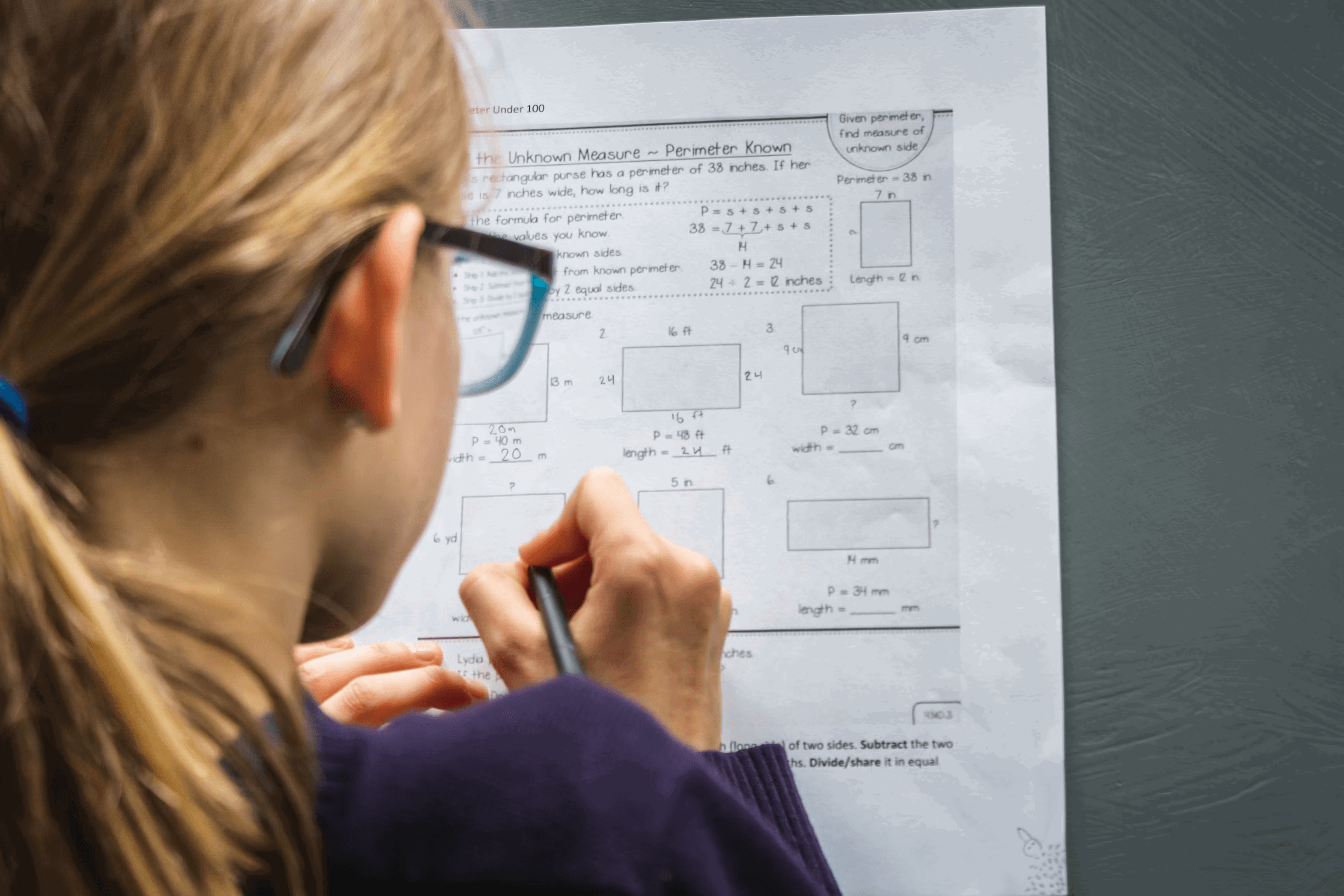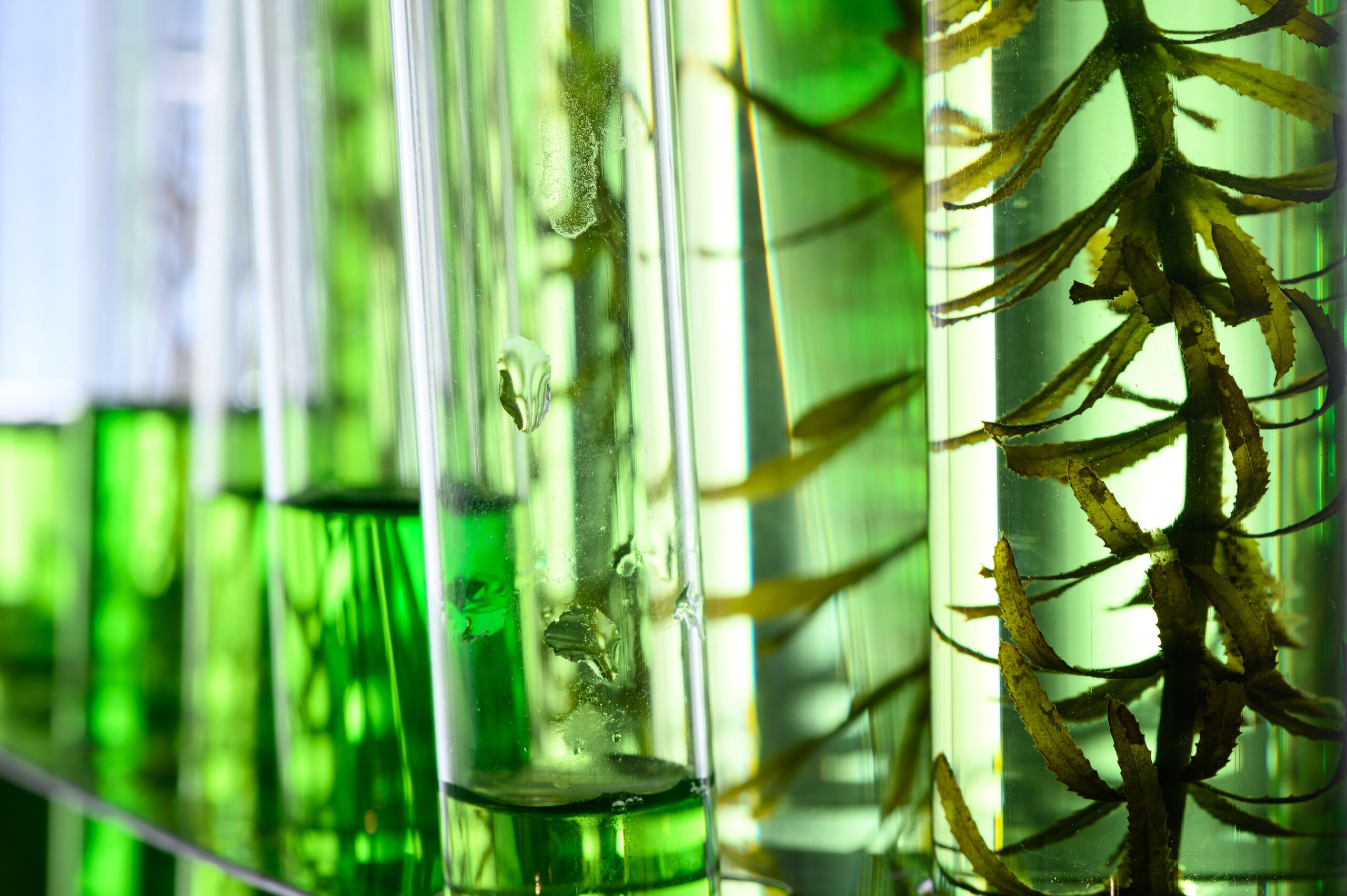How To Write Your Chemistry IA
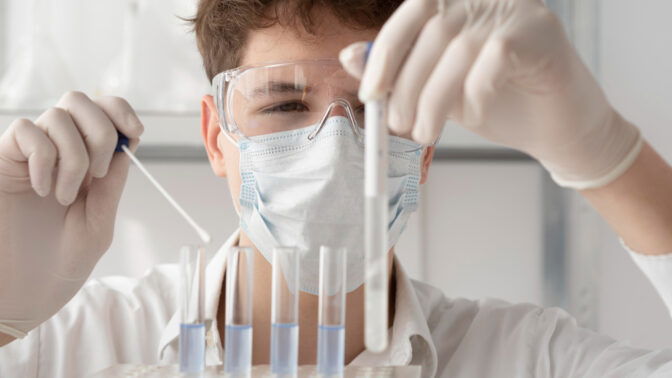
Getting through your Chemistry IA can feel quite overwhelming. This guide is here to help you through the process. We’ll give you some tips and ideas to choose a path that sets you up for success.
The secret is to break it down into manageable steps and tackle them one by one. While, it might be tempting to put it off and tell yourself you’ll do it at the last minute, try to get started now. Once you get your IB Chemistry IA on the go you’ll realise that it is not as hard as it first seems.
We have talked to our top IB teachers to give you the lowdown on what to do to get your Chemistry IA done and dusted.
What is an Internal Assessment in Chemistry?
The Internal Assessment (IA) in the IB Chemistry course is your chance to try your hand at scientific research. With your teacher’s guidance, you will design and conduct your own experiment. Unlike typical lab exercises, this time you’ll be the one in charge, making both measurements and detailed observations.
This project isn’t just about mixing chemicals and recording results. It’s about learning more about a specific section from the IB Chemistry syllabus. Independent experimentation, data analysis, and reporting should give you a richer understanding of the topic. At the same time, you will be able to improve important skills such as critical thinking, problem-solving, and scientific writing.
Starting in 2023, the IA offers an exciting new possibility – collaboration! You will have a chance to team up with your classmates. While you still have to submit an individual report, you can collaborate on certain aspects (such as sharing similar methodologies). The most important thing is that you keep the variables and data unique to your experiment. Whether you do your IA individually or in a group, the word count is the same – a maximum of 3,000 words.
Your IA is not just a showcase of your knowledge and skills. It is also an integral part of your assessment contributing 20% to your final grade at SL and HL alike.
Doing well in your IA can also give you a strong foundation from which to launch into your final exams. By doing a strong IA, you already have points in the bag ahead of the final exams and it can help take the pressure off, even just a little.
Chemistry IA Grade Criteria
The new IB Chemistry syllabus puts a greater emphasis on thinking skills. Now, the Conclusion and Evaluation count for half your marks, so you need to invest time in getting these sections right. Here’s a breakdown of all 4 grade criteria bringing 24 marks in total:
Research Design (6 marks)
This criterion checks how well you explain your experiment’s purpose, methodology, and steps. Along with that, it assesses whether you provided a clear justification for why you chose them and whether your choices align with the research question.
Here is what you need to do to meet the Research Design criterion:
- Make sure your research question is clear and relevant to the Chemistry IA topic. It should also explain the system you’re studying.
- Provide a brief overview of the theoretical framework behind your question.
- Describe how you measured your variables (what you changed and what you observed) and why you chose those methods.
- Explain in which way and how much data you collected (e.g., from a database, experiment, etc.). It is also worth mentioning safety or ethical considerations.
- Briefly describe the materials you used and the steps you took. However, try to avoid unnecessary details. Ideally, your explanation should be enough for someone to understand and repeat your experiment.
Data Analysis (6 Marks)
With this criterion, examiners want to see how well you presented and explained your data. To maximise your marks, you need to meet the following requirements:
- Show that you considered any potential errors in your measurements.
- Make sure your processing is accurate and relevant to answering your question.
- Your communication is clear and accurate. In particular, this includes proper labels, units, as well as formatting for graphs and tables.
- Your report should not have major mistakes or missing information as they can hurt your chances of drawing a valid conclusion.
Conclusion (6 Marks)
This is where you answer your research question based on your analysis and existing scientific knowledge.
- Your findings should justify your conclusion and directly answer the research question.
- Explain how your findings compare to what scientists already know about the topic.
- You also need to refer to relevant scientific sources (books, articles, etc.) to showcase that you understand the results.
Evaluation (6 Marks)
This criterion stresses the importance of reflecting on your experiment. Specifically, it prompts you to be critical of your methodology. What would you do differently next time and how could it affect your result?
- Pinpoint any weaknesses in your method, such as limitations in controlling variables or data accuracy. It is also important to explain how they affected your results.
- Offer some ways to address these weaknesses and improve your experiment.
- Be specific – avoid generic suggestions that could apply to any investigation.
How to Get a High Score in Your Chemistry IA?
Now that you know IA’s criteria and their requirements, let us provide some tips on how to get a top grade.
Use the Right Research Question
First things first, the right research question is crucial for a high-scoring Chemistry IA. Whether it is phrased as a statement or question, it must be quite specific but can’t just repeat your project title. Ultimately, the chosen question should allow you to showcase your high-level thinking skills and guide you towards gathering rich, usable data.
You are not sure if your question is clear enough? Then have someone, such as a classmate or tutor, read it. Can they grasp your research goals and experimental approach without the need for additional investigation?
Choose an Interesting IA Chemistry Topic
The best Chemistry IA topic is one that fuels your passion. With such a topic, designing, conducting, and reporting on an experiment will be more enjoyable. But it’s not just about having fun. Reviewers reward higher marks when they recognise that the topic stems from your personal interests rather than a random selection.
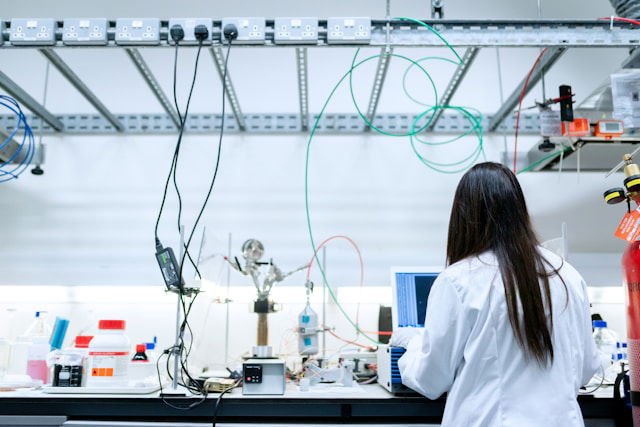
Another sign of a good Chemistry IA topic is originality. Hence, you need to avoid topics your teacher might have seen before.
Finally, when introducing your topic, it’s best to cite facts and statistics to show that it has real-world significance.
We have a list of ready-made 30 topics for Chemistry IA, you can use them as an example or be inspired by them.
Planning is Key
Thorough planning is more critical for the Chemistry IA than any other IB component. That’s because your experiment may come across unforeseen issues and you need to take this possibility into account. If you don’t, you will be at risk of last-minute do-overs.
Needless to say, all this can result in inaccuracies and a sloppy report. Hence, you need to factor in enough time for potential redoes and revisions.
Effective Presentation and Layout
An easy-to-follow structure where every element is clearly defined and serves a purpose is the key to getting maximum points for the Research Design. Although there are no specific requirements on how to organise your lab report, we recommend the following structure:
Introduction
In the introduction, you should briefly introduce the experiment and explain your personal connection to the topic. Furthermore, you need to present the background, i.e. scientific concepts behind your investigation as well as facts and evidence to support them. This section is also where you can introduce any equations or formulas crucial for understanding your experiment.
One more important part of the introduction is the hypothesis, which is your educated guess about how the experiment will go. In other words, you try to predict how the dependent variable (what you measure) will change in response to the independent variable (what you manipulate).
Design
This section explains how you build your experiment.
Start with a clear and focused research question. More often than not, the question looks like “How is X dependent on Y?”, i.e. it highlights the specific relationship you’re investigating. Make sure to keep it concise and avoid ambiguity.
Next, you need to introduce the variables of your experiment:
- Independent Variable: The factor you control and manipulate to see its effect.
- Dependent Variable: The variable you measure or calculate to observe the impact of the independent variable.
- Controlled Variables: The other factors that might influence the outcome of your experiment.
This grid method can sometimes help you consider what you might be able to manipulate and measure for any rates of reaction style experiments. You can choose an appropriate Independent variable and then consider which Dependent variable is most suitable.
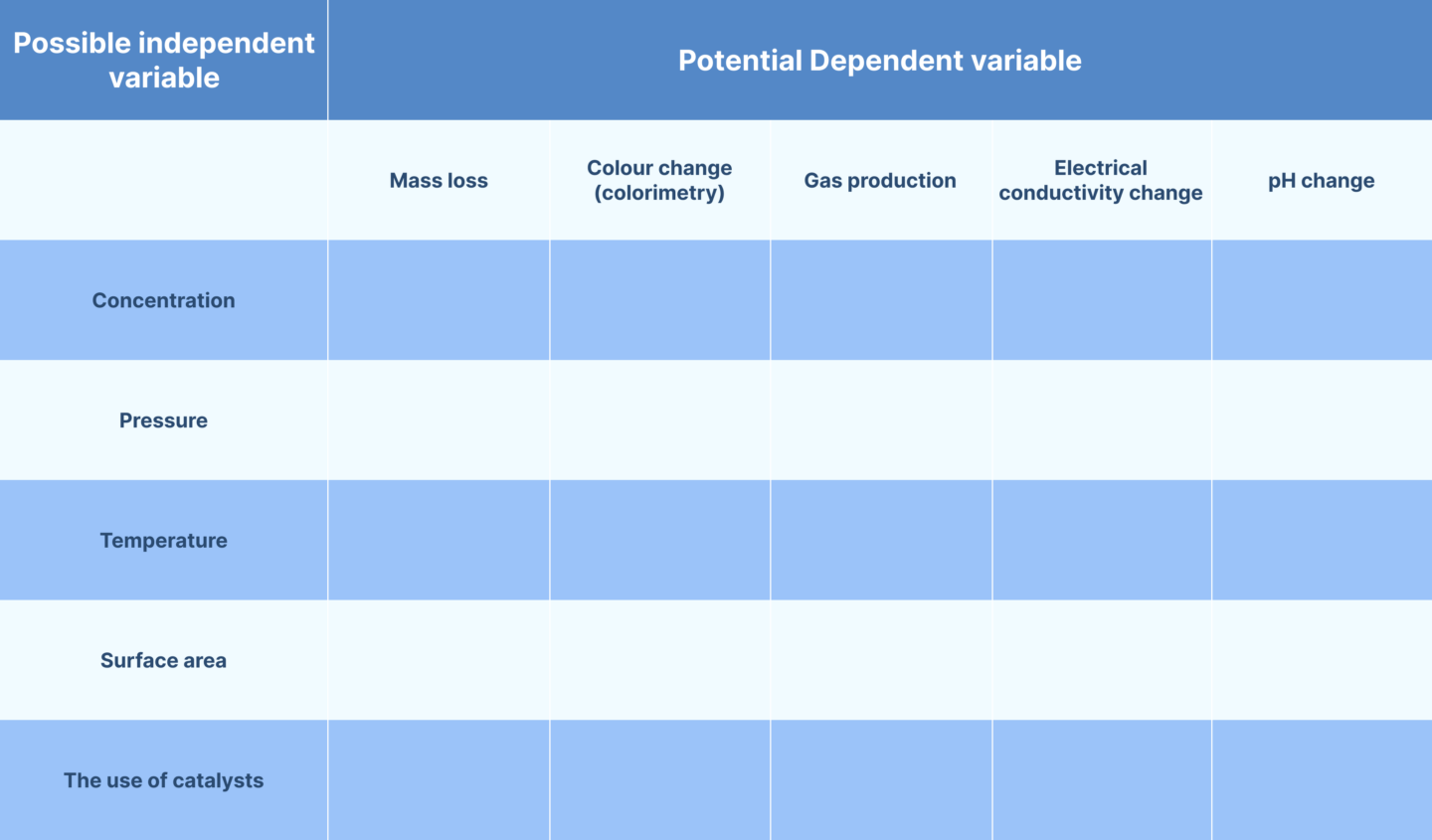
This section continues with a description of your methodology. Specifically, you need to explain step-by-step how you conducted your experiment. It is vital to detail every choice you made (I chose this reagent, tool, chemical, etc. because…) and how it impacted the experiment.
But don’t just provide descriptions. If you can, you should also include diagrams or pictures to illustrate your experiment.
Results
The results section introduces the data you gathered during your experiment.
You need to record your raw data, both qualitative (observations) and quantitative (measurements), meticulously. It is best to use tables to organise everything. Not only will it make your design neater but also help compare variables and identify trends.
Once this is done, it’s time to interpret what you’ve collected. You can do so by calculating totals, averages, and correlations. Use graphs and charts to visually represent your findings as well as incorporate formulas and error margins.
The final step of data analysis is a comparison of your results with established scientific values (if available) to assess their accuracy.
Conclusion
To make a conclusion, you need to re-state your research question and provide a clear answer based on the data you obtained. The same section requires you to reflect on your investigation. In particular, it is important to critically evaluate your methods and discuss any challenges you faced. Did your procedure work effectively? Were there any unexpected results? Discuss these openly and honestly.
Finally, you should suggest improvements for your experiment considering what you’ve learned. This part is supposed to demonstrate your critical thinking and willingness to refine your work.
Carefully Explain Your Methodology
It’s best to think of your methodology as the detailed recipe for your experiment. Basically, it’s a step-by-step process of how you’re going to answer your research question. But it goes further than simply listing the actions you took. You also need to explain why you chose those specific steps, materials, and techniques.

When it comes to materials, make sure to specify every single chemical and piece of equipment you have used. Try to be specific – instead of generic “beakers”, you should write “250 ml beaker”. The same goes for quantities and measurements – “add 5 g of sodium chloride”.
Your methodology description should concern data collection as well. Alongside the variables you collected, you need to specify how (for example, “Record the temperature every 30 seconds using a digital thermometer”). It is also worth mentioning how you ensured the accuracy of your measurements and addressed uncertainties.
Finally, you need to identify potential hazards and discuss ethical considerations. In particular, mention how you minimise the use of chemicals and dispose of substances.
Book free trial with our certified IB Chemistry teachers today
100 % of tutors are certified teachers and examiners
Data Collection
Data collection is the heart of your IB Chemistry IA. It’s where you gather the evidence to answer your research question. To do so, you need to choose the right tools and methods to collect the data.
For instance, if you’re investigating the effect of temperature on reaction rate, you’d collect temperature, time, and amount of product formed. However, don’t just rely on just one measurement. Instead, you can collect multiple data points under different conditions to ensure your results are reliable.
Throughout your experiment, you need to keep a detailed record of your observations, measurements, and any unexpected events. To organise your data, use a table or spreadsheet with clear labels and units. While numerical data is crucial, observations and qualitative descriptions can also be valuable. For example, you should note a colour change or the formation of a precipitate.
Last but not least, be aware of potential sources of error and take steps to minimise them (calibrating instruments, repeating measurements, etc.).
Result Interpretation
Reflection is an extremely important component of your Chemistry. To get as many points as possible, you need to analyse the meaning behind the data you collected.
First and foremost, it is important to directly address your research question. Did your data support your initial hypothesis, or did you prove yourself wrong?
Start with thoroughly examining any trends or relationships that emerged from your data. Then, compare your findings with established scientific principles and published research and identify the areas where they agree and where they differ. Finally, explain the significance of your results and what they tell you about the chemical phenomena you investigated.
Showcasing your critical thinking is also important. Don’t shy away from discussing the limitations and weaknesses of your experiment. Be honest about systematic errors, random errors, or uncertainties in your measurements. These limitations don’t automatically equate to a poor IA! Instead, they open up the opportunity to suggest improvements. How could you modify your methodology to obtain more precise data, or extend your investigation to address unanswered questions?
Proofread Your Work
No one is immune from typos, grammatical errors, and inconsistencies. Proofreading allows you to catch these sneaky mistakes before they create a negative impression on your teacher or external examiners.
While your experiment might be complex, your writing should be the opposite, i.e. clear and concise. As you proofread, try to refine your language and eliminate unnecessary jargon. Most importantly, you need to ensure that your ideas are communicated effectively.
From units and significant figures in your data to proper source referencing, every detail must be accurate and consistent with scientific conventions.
Conclusions
Hopefully, by now you have seen that delivery a solid, even great, Chemistry IA is within reach. By breaking it down into manageable steps a good IA is achievable for all students, but this means investing the time early to give yourself the chance to make it a success.
Often our IB teachers are frustrated when good students leave their IA to the last minute. This can mean it is done in a rush and is lacking the necessary planning and reflection to access the top scores.
Get going early, follow our steps, list to the feedback from your teacher and if you need it reach out to us at TutorsPlus. In this way you have everything on your side, and a strong IB Chemistry IA is certainly within reach.
By Sara Lloyd
Sara has been an education consultant for TutorsPlus for 15 years, and is an expert on international IB education. She is also a parent of two lively children.




